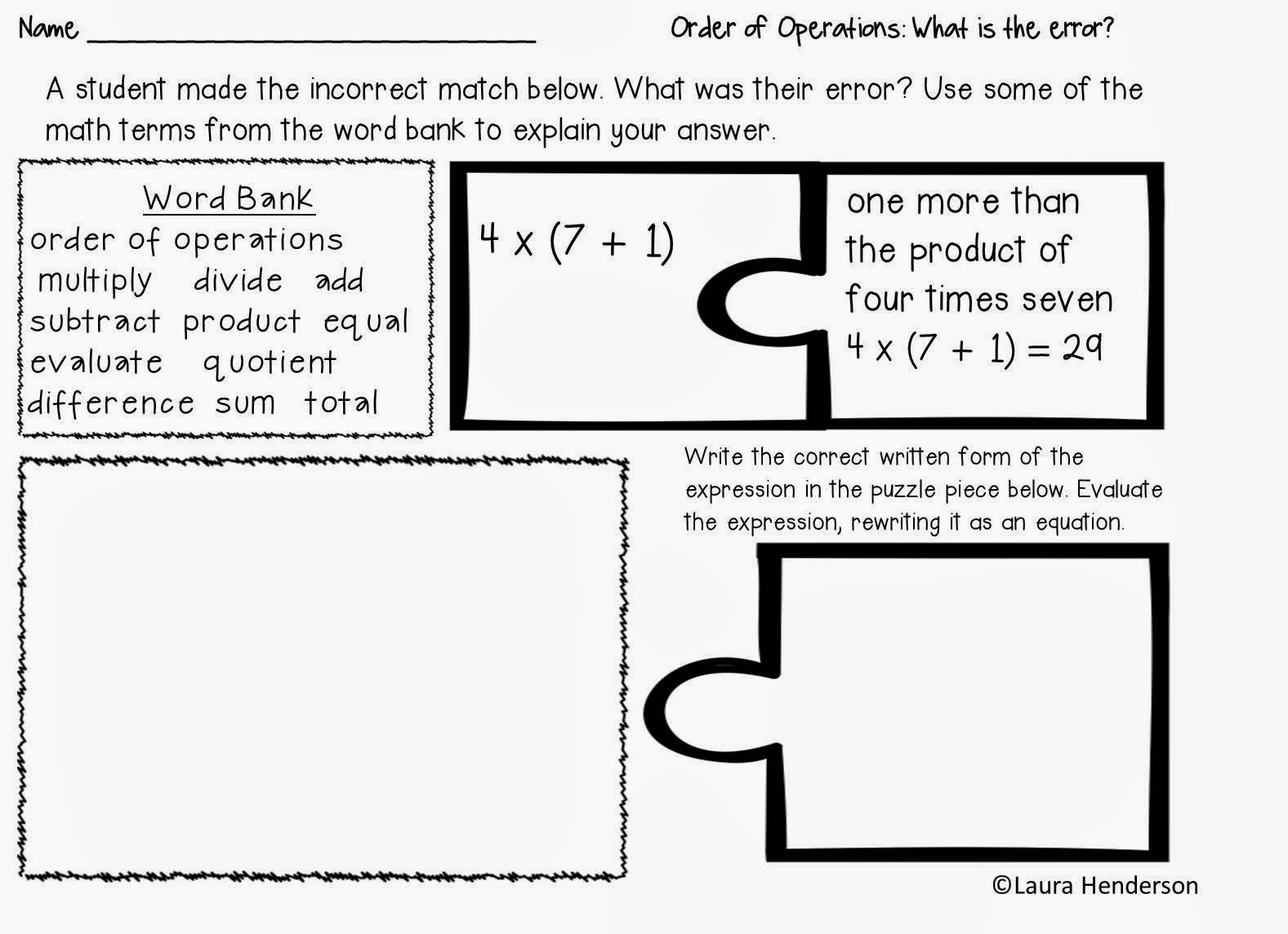Make sure you check it out for great math ideas to use in your classroom.
At my school, in the upper grades, we ability group our math classes to a certain extent to reach all of our learners. (The groups are flexible and we make adjustments as needed.) It really helps us challenge the higher kids to achieve as much as possible and create small groups to reach out to our struggling mathematicians.
I am lucky to work with an interrelated resource teacher with kids who have IEP's and am able to work with struggling students in an inclusion setting. Not all of my students have IEP's, some fall in to that grey area, and benefit from the extra time to process and tackle the concepts before becoming completely successful.
Many of my students claim to be lousy at mouth, hate math, and say they just don't get it. It means one of my jobs is to show them they are capable, they can do it, and math is important to them.
It is incredibly important to model and show them how it is important to them. We spend lots of time talking about how it will help them in their life and showing them ways to think logically about math.
Case in point, does it make sense that 1.5 pounds of salmon would cost $149.50 if 1 lb costs $9.99? (This was an actual conversation we had the other day.) So to help them we give them perspective, we discuss common sense, discuss how to read math problems, and discuss how errors occur.
One of the things we incorporated in to our lessons last year was finding the error in their own work, and errors in hypothetical students. We found this made a big difference in how they think through their own work. If they can find an error then they truly understand how to solve it. We also have them explain the error and how to solve it correctly.
One thing we learned was that they often struggled to use the math terms when explaining their thoughts, so we started providing word banks with our find the error problems. Wow, what a simple solution adding a word bank was. Suddenly they were using more words and eventually they used them without being prompted. Of course, it was a process and required lots of modeling. What we learned though was to practice, and keep at it.
Here is an example of a problem we have used
 |
| What is the error sheet from Order of Operations Matching Centers Activity Packet |
Here is another example that we will be using in the near future (after we finish the good 'ole ITBS).
 |
| Error sheet from Decimal Multiplication Models Packet |
As I remind my students daily, everyone makes mistakes, and we really can learn from our mistakes.
What are you doing in math in your room?
Don't forget to check out the other great ideas at I Heart Recess!



Love your focus on them finding their errors! I think it's a hard concept for kids to realize that they do make mistakes and that they need to learn how to go back and check if their answer is reasonable. Great post.
ReplyDeleteJess
*Please send me a reply so I can send you a "treat" for linking up :)
I {Heart} Recess